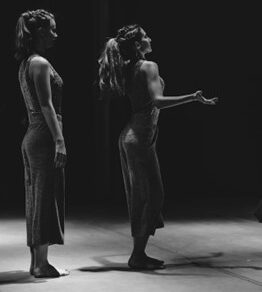
Stage presence is a performer’s ability to capture and command the audience, directing their attention using speech, body language, actions, and more. While it’s true that this on-stage demeanor comes more naturally to some people than others, it’s a skill that requires practice. Thus, anybody can pick it up.
Through breathwork, voice projection, the right use of eye contact, and always striving to improve, James Snyder says that performers can grasp command the stage with prowess.
Focus on Breathing
On-stage confidence comes from a simple yet often-forgotten trick — breathing.
Controlling the breath relaxes the body, allowing the mind to think more clearly and overcome its fears. Performers should aim to breathe slowly and evenly from the core: breathing in for four and out for four.
Even the most established performers are nervous before they walk out in front of the crowd. However, proper breathing prepares their minds and bodies for what’s to come, allowing them to increase their calm and perform above their own expectations.
Project the Voice
Every role (apart from a few rarities) necessitates voice projection (i.e., the process of casting voice far enough so everybody can hear it). Contrary to popular belief, this doesn’t mean shout; it just means talk loudly.
Proper projection ensures the actor is in complete control of the sound coming from their diaphragm. Perhaps the best way for performers to warm-up before heading on to the stage is produced by the UK’s National Theater showcased perfectly on the organization’s YouTube channel. Following professional techniques allows projection to appear effortless — the key to commanding the room with confidence and professionalism.
Use Eye Contact Cautiously
Most people, whether they’re performers or not, will have heard that making eye contact with audience members is the best way to connect with them. However, that’s far from the reality.
Granted, eye contact is an ultra-powerful force offering a personal connection, but that isn’t necessary on the stage. Using eye contact too much can unnerve people and, particularly in the case of theater productions, can remove observers from the story.
That said, there are times when eye contact is necessary in theater and beyond. In this case, actors should aim to look over the audience’s heads. This creates the illusion of direct eye contact.

Consider Body Language and Posture
Body language is a powerful tool and one that directly (but often subconsciously) controls how the audience feels about the performer. Therefore, actors should consider how they’re standing and whether it portrays the right message. Of course, this can vary from character to character, but a confident stage presence means having good posture, moving naturally, and conducting open gestures.
Always Try to Improve
Watching performances back is a tried-and-true method for improving stage presence. It allows actors to look at their strengths and weaknesses, making a plan of improvement action.
Reaching lofty acting heights requires exceptional attention to detail, the ability to think critically, and the motivation to enhance their outputs. With all that ready to go, commanding the stage is easier than many believe.



